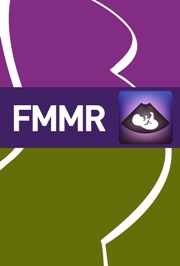Article contents
Maternal anaemia in pregnancy. Iron and pregnancy - a haematologist's view
Published online by Cambridge University Press: 25 July 2001
Abstract
As a haematologist I would like to present an alternative view to the belief that routine iron supplements during pregnancy are neither necessary or beneficial in developed countries and that advantages, if any, are far outweighed by widely publicized real and theoretical side effects.
For most clinicians it is difficult to accept that in well nourished populations the extra requirements of pregnancy are not met by a normal mixed diet. The haemodilution which occurs in healthy pregnancy because of the dramatic expanse in plasma volume has encouraged the acceptance of abnormally low haemoglobin levels as being physiological. Traditionally, obstetricians have believed that the only manifestation of iron deficiency during pregnancy is maternal anaemia which results in very few clinical manifestations and there are no other adverse sequelae for the mother and none at all for the fetus and infant. These concepts are supported by the fact that controlled trials do not demonstrate any obvious benefit of iron supplementation, particularly if the neonate is not subjected to long-term follow-up. More indirect associations such as general maternal wellbeing, reduced fetal placental ratio, preterm deliveries, post-partum haemorrhage and recovery from blood loss at delivery have not been looked at in an objective manner.
- Type
- Research Article
- Information
- Copyright
- © 2001 Cambridge University Press
- 10
- Cited by




